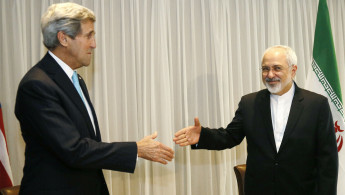How will Iran respond to Decisive Storm?
Not even the most pessimistic of Iran’s allies expected a Saudi reaction of this form and magnitude. The consensus was that the Saudis would not go beyond politics and diplomacy to counter the advances by the Houthi movement in Yemen. Just hours before the launch of Operation Decisive Storm, figures very close to Iran were still talking about the strategic dimensions of Iran dominating both Yemen and Iraq.
The Saudi step has recharged the simmering tensions between Riyadh and Tehran that cannot be confined to Yemen’s borders. Saudi Arabia has pushed Iran into a corner with this offensive. It must expect a tough response.
Syria the most likely battleground
The question is where. Reports and analyses from various sources indicate Syria would be the most likely venue for Iran to respond, for a number of reasons.
First, the Saudi offensive was not directed at Iran directly. Therefore, the Iranian response is unlikely to be direct either. Just as the Saudis have targeted an organization with ties to Iran, so such an organization, Hizballah for example, is most likely to respond, this according to informed Lebanese sources.
Second, any Iranian response is governed by calculations attached to the nuclear negotiations with the United States. Although the Iranians and their allies say the negotiations only address the nuclear issue, this does not mean that Iran has the ability to get involved in additional regional conflicts without the fall-out from these impacting the negotiations.
Third, the arena where Hizballah is best able deal a blow to Saudi Arabia and its allies is Syria. Lebanon remains under regional and international protection which prevents either any conflagration there or at the same time any serious solution to its problems. And Hizballah can't afford to further destabilise its home territory since its support base would be unlikely to sustain the deterioration in the economic and security situations that a broad internal conflict there would entail.
What is more likely is that Hizballah would operate in the same spirit as the one following the Israeli assassination of its operatives in Quneitra, when it responded to prevent new rules of engagement but in a way that sought to avoid pushing the region towards an all-out war.
Fourth, the United States has taken steps to ensure that Bab al-Mandeb remains outside any conflict. Iran and its allies had threatened to block the strait if their interests were threatened. The strait is a major corridor for trade and global economic stability and is therefore a red line.
Fifth, in conjunction with the Saudi strikes, Washington deprived Iran of an important bargaining chip in Iraq when it launched air strikes against Islamic State in Tikrit, preceded by the withdrawal of pro-Iran militias that were besieging Tikrit. Remarkably, hours before the US air strikes, one of the advisers of the Iran-backed Popular Mobilization militia quoted the commander of the Iranian Qods Force, Qassem Soleimani, as saying he would not allow US planes to carry out strikes in Tikrit or allow Prime Minister Haider al-Abadi to credit any victory in the city to US forces.
What this and other factors mean is that Iran has a limited ability to respond to Saudi Arabia in Iraq. Furthermore, Iran is the key player in Iraq, and further undermining that country’s security would put its interests there at risk.
Sixth, both sides expect an escalation of the fighting in Syria, but the ability of Iran and its allies to escalate there is also limited. The regime and its allies have already waged two broad attacks in northern and southern Syria, which have failed to achieve their objectives.
Taking it on the chin
Today, Syrian opposition sources are saying there is an increase in the quantity of weapons and ammunition being brought into Syria, especially in the north and south. To be sure, a Hizballah escalation in Syria in response to Decisive Storm would mean achieving a serious breakthrough in the north by approaching the Turkish border and in the south by approaching the Jordanian border.
If the Iranian response remains confined to Syria in the current manner, it will mean Iran has taken the Saudi blow on the chin, pending a more opportune moment to respond.
This is an edited translation from our Arabic edition.



